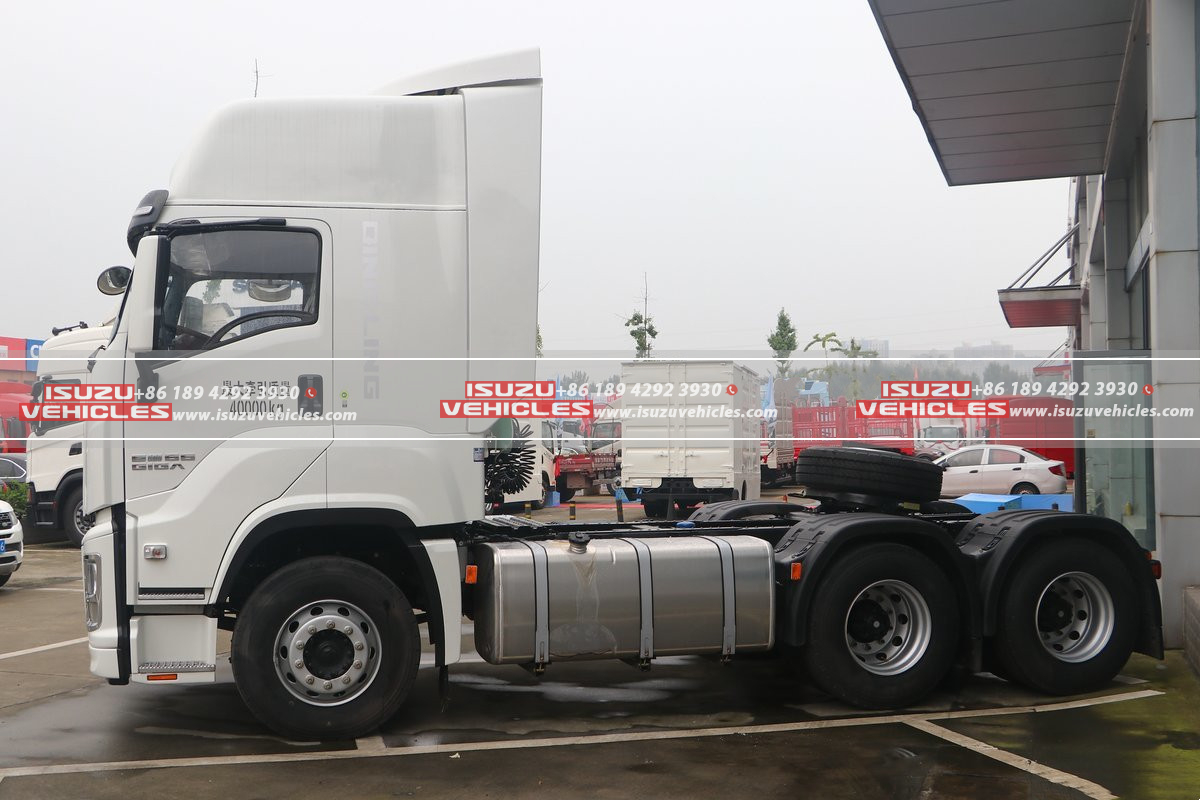Africa’s logistics sector, tasked with navigating vast distances and diverse terrains, is increasingly turning to ISUZU tractor trucks to overcome operational challenges. These vehicles, designed for long-haul freight and cross-border commerce, are being deployed by major logistics firms to streamline supply chains across the continent. With Africa’s intra-regional trade projected to grow by 15% annually, the demand for reliable, heavy-duty haulage solutions has never been greater. ISUZU’s latest delivery of tractor units to Kenya, Nigeria, and South Africa underscores its commitment to supporting Africa’s economic integration and infrastructure development.
1. Addressing Africa’s Unique Logistics Demands
Africa’s logistics networks contend with extreme conditions—unpaved highways, fluctuating fuel quality, and prolonged exposure to harsh climates. ISUZU Tractor Trucks are engineered to meet these challenges head-on, offering a combination of durability and adaptability critical for regional trade corridors like the Trans-African Highway. Their reinforced chassis and suspension systems can withstand the continent’s notorious road conditions, reducing breakdowns that cost logistics firms an estimated $180 million annually in delays.
The trucks’ modular design allows easy customization for specialized cargo, from temperature-sensitive pharmaceuticals to heavy machinery. This versatility positions them as a preferred choice for companies operating in sectors as varied as mining, agriculture, and e-commerce, where timely delivery is paramount.
2. Features Driving Adoption: Power, Efficiency, and Reliability
Engineered for Harsh Environments
At the core of the ISUZU Tractor Truck is a 6WG1-TCG turbocharged engine, delivering 420 horsepower and 1,961 Nm of torque. This powertrain is calibrated for Africa’s high-altitude routes and low-grade diesel, ensuring consistent performance where other brands falter. The inclusion of extended oil and air filtration systems mitigates damage from dust-laden air, a common issue in arid regions.
Cost-Effective Fleet Management
Fuel efficiency remains a top priority for African operators, where diesel costs account for 35–40% of overhead. ISUZU’s selective catalytic reduction (SCR) technology reduces fuel consumption by 12% compared to older models, while meeting Euro V emission standards. Additionally, the trucks’ telematics integration enables real-time monitoring of fuel usage, route efficiency, and maintenance needs—a critical tool for managing fleets across multiple countries.
Enhanced Safety Protocols
With Africa accounting for 20% of global road fatalities, safety innovations are non-negotiable. ISUZU equips its tractors with lane departure warning systems, adaptive cruise control, and emergency braking, features rarely found in trucks at this price point. The robust cabin design, tested for rollover resistance, provides added protection for drivers on poorly maintained roads.
3. Strengthening Africa’s Logistics Ecosystem
The deployment of ISUZU Tractor Trucks complements the brand’s broader strategy to dominate Africa’s commercial vehicle market. Local assembly plants in Kenya and South Africa ensure quick turnaround for parts and repairs, addressing a longstanding pain point for logistics firms. ISUZU’s investment in technician training programs—over 2,000 certified mechanics trained since 2020—further cements its reliability.
The trucks’ success is amplified by ISUZU’s diverse product lineup. The ISUZU chassis truck, for instance, serves as the backbone for custom builds like fuel tankers and mobile clinics, while the nimble ISUZU ELF dominates last-mile delivery networks in urban hubs. Together, these models create an integrated logistics solution, from long-haul freight to metropolitan distribution.
As Africa accelerates its Continental Free Trade Area (AfCFTA) ambitions, the ISUZU tractor truck stands as a catalyst for progress, bridging infrastructure gaps and enabling seamless cross-border commerce. With plans to introduce hybrid models by 2025, ISUZU continues to align its innovations with Africa’s sustainable development goals, ensuring its vehicles remain at the forefront of the continent’s logistics transformation.
